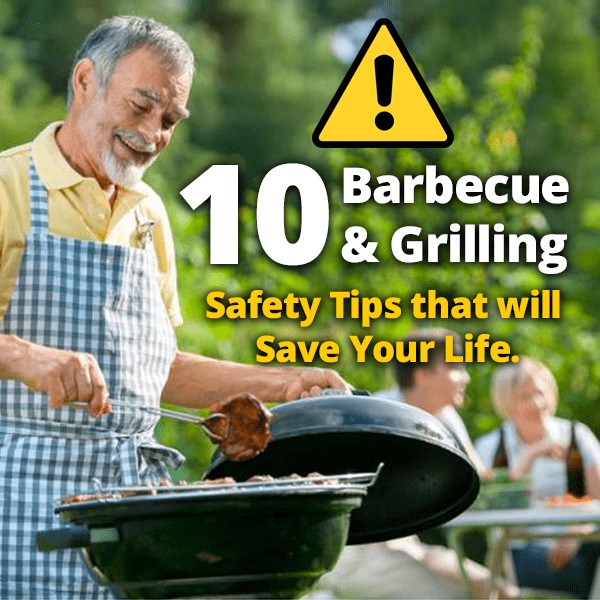
Numerous garden accidents happen every year, and one of the top causes involve barbecue grills. Based on figures gathered through the Home and Leisure Accident Surveillance System (HASS/LASS) in 2002, an expected 1,800 individuals went to A&E in the UK having had a mischance with a grill.
The most well-known sorts of grill related mischances as indicated by the HASS/LASS figures were:
• Blaze/burn/other harm identified with flame or fire – 800.
• Cut/tear by sharp edges – 200.
• The greater part of grill mischances (1,400) happened in a home setting, with 300 happening in an open spot.
The quantity of accidents rises on a hot summer. A percentage of the mischances lead to intense smolders, ordinarily as a consequence of utilizing a quickening agent, for example, petrol to light the fuel.
Everything has dangers. Understanding what those dangers are and how to lessen them is the key to your family’s safety. At the point when grilling outside, whether hot and quick barbecueing, or low and moderate grill there are a couple of things you have to know to get the most out of your cooking.
Listed below are the 10 barbecue and grilling safety tips that will save your life:
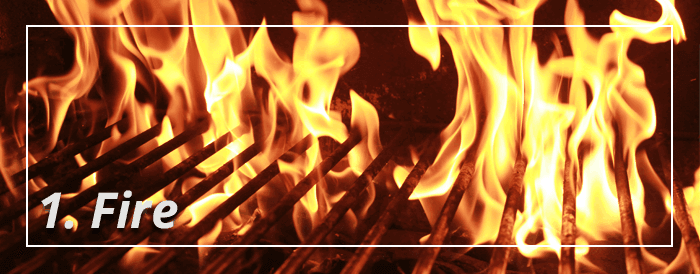
1. Be Cautious with Fire
Fire is the most ruinous drive in the universe and you are welcoming it into your patio for a little bbq picnic.
• Initially, you need a flame douser.
• Next, you have to know your flame and know how to safely control it.
• You have to know how to cut fuel supplies, smother flames and call the flame division.
• Continuously have one individual responsible for the flame at all times, a flame marshal perhaps.
• You ought to likewise know something about treating blazes.
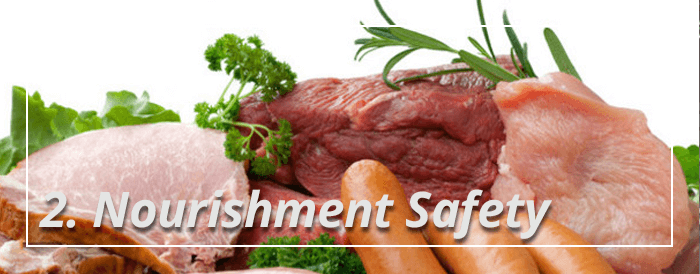
2. Stay Nourished
Microscopic organisms eats each sort of nourishment you can consider even brussel grows. It develops at any temperature above solidifying and stays alive until that temperature hits around 165 degrees F.
• Along these lines, until it goes into your mouth or on the barbecue, it needs to be kept cool.
• The essential tenets are: Inspect Everything, Keep it Covered, Keep it Cool, Get it Hot, and Use your Head.
• Remember that you are more prone to get sustenance harming than you are to get seasonal influenza.
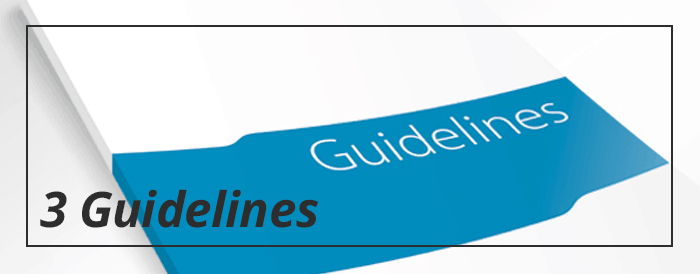
3. Read your Barbecue Grill’s Guidelines
You’d be astounded by what number of inquiries someone get asked when the answer was in the manual. If its not too much trouble read the manual.
- Take after all the security confinements to the letter.
- On the off chance that you have a flame and you didn’t take after the guidelines it is your shortcoming, regardless.
- Barbecues, gas or charcoal, and smokers all have particular scopes of operation. You have to know these before you light up.
- Try not to expect that your new barbecue lives up to expectations simply like the last one and that all the same principles apply.
- One insight: You can find the manuals to most flame broils and smokers on the maker’s site.
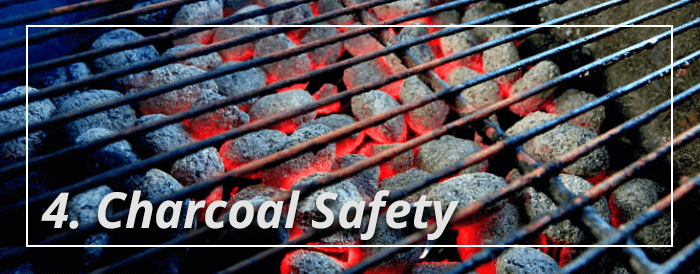
4. Be Careful with Charcoal Barbecues
Charcoal barbecues are the reason for significantly more flames that gas flame broil. The most obvious issue with charcoal barbecue is lighting the charcoal.
- Lighter liquid causes a wide range of issues and you ought to truly locate a superior approach to light your coals. What truly blazes the hair off your face is adding lighter liquid to hot coals.
- Lighter liquid swings to a substantial gas at a generally low temperature.
- While fluid lighter liquid smolders, vanished (vaporous) lighter liquid blasts.
- Stream the directions precisely and never let lighting charcoal turn into an amusement.
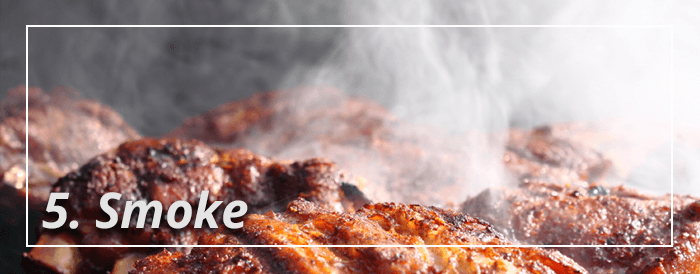
5. Keep a Safe Distance from Smoke
Smoke gets in your hair, garments, eyes, and lungs. You have to be cautious with the smoke.
- Smoke from your barbecue or smoker contains carbon monoxide, Polycyclic Aromatic Hydrocarbons (PAH), and different hazardous substances.
- PAH are tumor bringing on substances that are framed when oil smolders.
- As much as we all adoration the odor of the smoke from our outside cooking it is best to give it a chance to escape without breathing it in.
- Remember to keep a safe distance from smoke
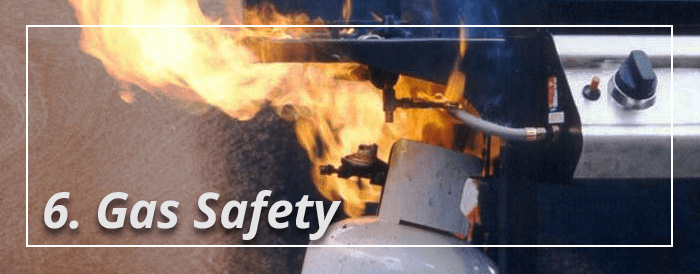
6. Ensure you are Safe from Gas Flame
The most obvious reason for gas flame broil flames is a check in the way of the fuel. This generally happens behind, underneath or inside your barbecue where you can’t see. This implies you have to routinely check your gas flame broil for issues.
- Bugs and different critters can move into little places creating gas to stream where it shouldn’t.
- At the first indication of issues, turn off your control qualities, fuel tank, and separate everything.
- Gas flame broils deliver a lot of warmth that can dissolve through hoses, handles and different parts.
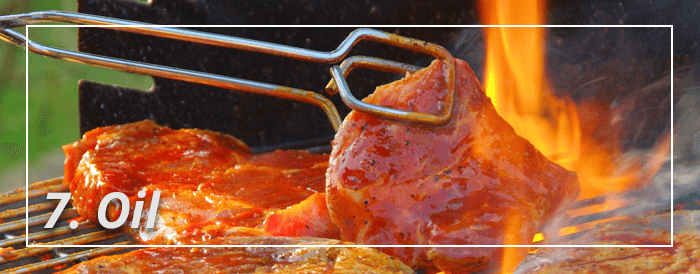
7. Choose the Best Oil to Use
It is terrible that you are utilizing combustible materials to do your cooking, yet the nourishment itself is making more.
- Flare-ups are more than an irritation, they are conceivably deadly.
- Oil that gathers in your barbecue develops over the long haul.
- It is anything but difficult to get a few pounds of oil in the base of your flame broil after just a couple of barbecues.
- This is the reason you have to keep your flame broil clean. A clean barbecue is a more secure flame broil whether it is gas or charcoal.
- Smokers are not excluded from this issue as I have seen numerous wild oil fires in smokers. So regardless of what you utilize, get the oil out.
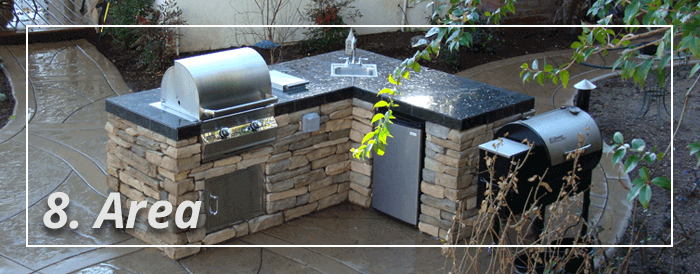
8. Highly Consider your Cooking Area
Area is one of the things that you should consider for your barbecue or smoker. Consistently several individuals’ reason flames to their homes, carports and yards in light of the fact that they didn’t put their barbecue or smoker in the right area.
- Your manual (tip #3) will let you know the base separations around your unit that must be kept clear.
- We propose that you investigate your hardware and envision the most exceedingly terrible flame you can. Verify there isn’t anything (structures, trees, and so on) in that space.
- Additionally verify that your barbecue isn’t going to oblige individuals to walk excessively near to hot surfaces and that kids won’t be playing adjacent.
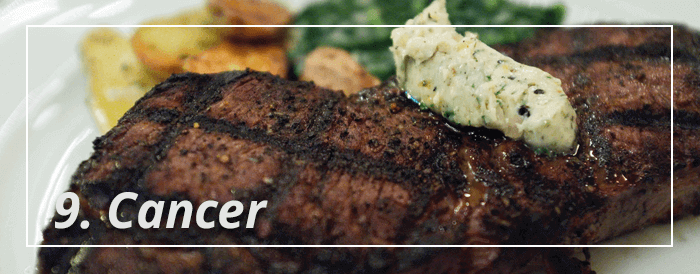
9. Prevent the Danger of Cancer
Cooking (by any system) of meats (especially red meat and chicken) at high temperatures until surface scorching happens can bring about malignancy bringing on substances such as Heterocyclic Amines (HCA) to frame. If you eat a considerable measure of barbecued meats you have to stress (however nobody knows precisely how much). To minimize the danger you have to:
- Utilization marinades (which can diminish the danger by as much as 98%)
- Don’t overcook your food.
- Keep barbecue temperatures moderately low.
- Use more slender or littler cuts of meat (kebabs are extraordinary).
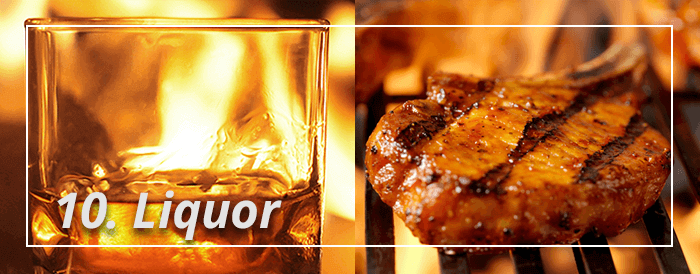
10. Know the Danger of Smoking Using Liquor
In the wake of perusing the nine above you truly shouldn’t need to ask.
- Drinking liquor while barbecuing is one of the traditions that we used to do. Flame broiling and smoking while barbecuing is dangerous. Consider setting aside your liquor for your family’s safety.
- It would be also ideal to you keep a liquor to use for marination your barbecue and spare a liquor of your own.
Fire in the flame broil, under sausage and burgers, is an appreciated sight at the family barbecue. Anyhow, fire anywhere else can make your late spring commencement grill critical for all the wrong reasons. So always be safe and cautious while enjoying the food!
Looking for sumptuous barbecue recipes for holidays and family gatherings? We’ve gathered 35 of the best bbq recipes around the web. But remember to stay safe!
1) http://bbq.about.com/od/grillinghelp/tp/grillsafety.htm
2) http://www.fireservice.co.uk/safety/barbecue
3) http://www.rospa.com/home-safety/advice/general/barbecue-safety/
4) http://www.nhs.uk/Livewell/Summerhealth/Pages/Barbecuefoodsafety.aspx
5) http://www.nfpa.org/safety-information/for-consumers/outdoors/grilling/grilling-safety-tips
6) http://www.cheshirefire.gov.uk/public-safety/campaigns/outdoor-safety/barbecue-safety
